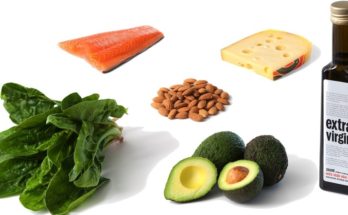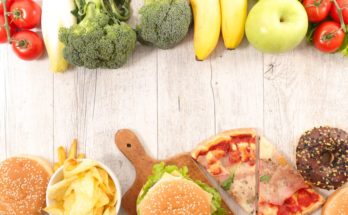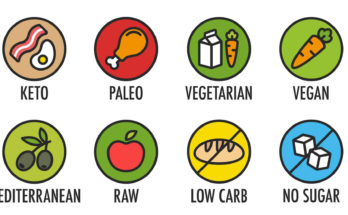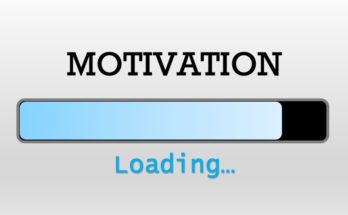In the previous article, we talked about the Ducan diet and why it is highly desirable not to use this diet.
In this article, we will talk about the so-called LCHF diet, or rather, about the LCHF diet, because there are certain varieties (milder and more strict diet options).
But before we talk about LCHF, there is an important issue to be discussed about fats.
What makes us fat
“People get fat because they eat fatty foods” – this statement is already devil knows how many years. And there is some kind of common common logic in this: you eat fats, so they turn into fat. True, at the same time, folk wisdom does not explain what carbohydrates are converted into. In coal and water, or what? And what do proteins turn into – the whites of the eyes, or what? Well, it sounds the same, right?
In addition, if you follow this logic, then when you eat red tomatoes, you will blush. And when you eat green apples, you will turn green. When you eat fish, your gills should grow, when you eat herbs and greens, you should start to hum, and when you eat vegetables, your brain activity should stop – you will turn into a “vegetable”. Well, right, isn’t the logic exactly the same?
So, in fact, it is not fats at all that are responsible for the deposition of fat in the body, but primarily easily digestible (they are “simple”, they are “fast”) carbohydrates: sugar, fructose, sweets, baked goods.
Actually, even just a sharp reduction (or even better – a complete rejection) in your diet of easily digestible carbohydrates can already lead to the fact that you will noticeably lose weight. I know a lot of people who gradually lost ten or even twenty kilograms simply by giving up sugar, pastries, sweets, white bread and a noticeable restriction on fruit consumption (all modern fruits have a lot of fructose, that is, easily digestible carbohydrates).
Well, hello, you say, how can you give up sugar if, we quote another “popular wisdom”, sugar is very necessary for the brain!
This cute folk idiocy “sugar is very necessary for the brain to work” is terribly popular, and it is even repeated in articles published in seemingly decent magazines. And it is often repeated by people throwing five tablespoons of sugar into a cup of tea, for whom even the very fact of having at least some kind of brain in their head raises serious doubts.

So, my dears. No sugar, if by it we mean ordinary sucrose extracted from cane or beets, is not only unnecessary for the brain to function, but also dangerous: during the use of sucrose, the sugar level in a person’s blood rises sharply, this is dangerous for blood vessels and, accordingly, the brain and internal organs. And where can you quickly remove excess sugar? Yes, in fat, of course, in fat reserves.
The brain really needs glucose for normal functioning, but it is quietly synthesized by the body from various, including non-carbohydrate, products in the process of gluconeogenesis.
So do not worry, even if you completely stop consuming sugar and sugar-containing foods, nothing will happen to your brain: if it worked fine, it will work fine.
And think for yourself. But mankind learned to extract sugar not so long ago, somewhere only a thousand years ago. Instead, they used honey, raisins, fruits (fruits, by the way, then contained significantly less easily digestible carbohydrates), and in general, the consumption of simple carbohydrates was many orders of magnitude less than in modern life. And what, they were all fools? And then, when they began to extract sucrose from cane, beets, sorghum or beans, suddenly they grew wiser? Yes, something is somehow not noticeable, so that everyone has grown wiser.
Meanwhile, human nutrition at the modern level of development of the food industry contains such a wild amount of sugar that our ancestors never dreamed of. And okay, there are also well-known sources of sugar – all kinds of sweet soda, pastries, jams, and so on. But now they put sugar in literally everything! Bread is full of sugar (especially in white), all sorts of sauces are almost always with sugar, sugar is constantly shoved into yoghurts, into canned vegetables, into sausages, and so on and so forth.

When I got diabetes and began to carefully read the composition of the products on the label in stores, I found out that it is rather difficult to find a product that does not contain sugar. And if with natural products – meat, fish, vegetables – everything is still okay, then just some semi-finished product or ready-made product – everything is in sugar.
So why, one wonders, be surprised that humanity is rapidly gaining weight and that almost half of the population is overweight?

However, we were carried away into some kind of sugars, but we are actually talking about fats, let’s return to them.
Another stereotype about fat is that fatty foods are unhealthy because they lead to heart disease. Moreover, this stereotype was supported for a long time by various specialists.
However, recent research has rehabilitated fats! Because there is no proven link between saturated fat – meat, lard, cream, butter – and heart disease.
In the same way, modern research has shown the utter groundlessness and even harmfulness of the war on cholesterol that people, under the influence of the calls of doctors, waged in the last century. It turned out that cholesterol can be “good” or “bad”, that “good” cholesterol, on the contrary, reduces the symptoms of atherosclerosis, and that the so-called “bad” cholesterol also prolongs life after 60 years at an increased level.
Well, now we can talk about the LCHF diet.
LCHF diet
What is LCHF? This is Low Carbon High Fat, meaning low carbohydrates, high fats.
The LCHF diet is based on two basic principles that we have already discussed above.
- The old notions that people get fat from fatty foods are wrong. Digestible carbohydrates (also called “empty carbohydrates”) have an order of magnitude more impact on fat storage than fat.
- The old notions that high fat intake can lead to cardiovascular disease are also wrong, and they have been debunked for a decade.
Accordingly, the LCHF diet calls for the consumption of as little carbohydrates as possible, and does not introduce any restrictions, except for the usual reasonable ones, in terms of proteins, fats and fiber. And this, in general, sounds quite logical. This is how our ancestors ate for hundreds of thousands of years, until they began to grow wheat, potatoes and rice, and then they also learned how to extract sugar from cane or beets – and away we go!
The essence of the LCHF diet can be described very simply: we do not consume sugar, we do not consume easily digestible carbohydrates, we consume carbohydrate and starch products at the very minimum, and the basis of nutrition is made up of natural products rich in proteins, fats, fiber, minerals and vitamins.

Such nutrition is not only quite useful, but also, unlike easily digestible carbohydrates, it satisfies the appetite well and for a long time, so that a person simply does not need to eat a lot.
Actually, the very famous “Mediterranean Diet”, which is considered one of the healthiest in the world and thanks to which the inhabitants of the Mediterranean region are in good health and live a long time, in many components, in general, is quite consistent with the provisions of the LCHF diet: meat, fish (including fatty varieties), seafood, natural fats (the basis of the bases is olive oil, an excellent source of monounsaturated fatty acids necessary for the body), a variety of fresh vegetables and fruits, grain bread, red wine, consumed in moderation.
In the LCHF diet, the ratio of proteins, fats, and carbohydrates in the standard version (there are several modifications of it) is something like this (given on the LCHF.ru website ):

A gram of fat provides almost 2.5 times more calories than a gram of protein or carbohydrates, so a person gets satiated faster with fatty foods, while reducing the risk of overeating.
You will find detailed recommendations on LCHF nutrition on the Russian-language website of this diet , but everything is quite simple there.
Keto diets
With very low levels of carbohydrates in the diet and high levels of proteins and fats, the human body can enter a state called ketosis – this is when the liver converts fat into fatty acids and ketone bodies. These bodies go to the brain and are used as a source of energy. In a state of ketosis, a person loses weight quite quickly, because the body is actively processing subcutaneous adipose tissue. (Actually, something similar happens in diabetic ketoacidosis, only there the nature is completely different.)
Keto diets that use this effect are actively used by athletes, especially bodybuilders, but the safety of such diets is in question and there are many contraindications.
From the outside, such diets look very peculiar – you need to eat a lot of fat in order to quickly lose weight – but at the same time they only once again confirm the fact that a person is not getting fat from fat.
The LCHF diets argue that with this type of diet, you especially do not need to monitor the amount of calories consumed. Like, when you practically do not consume fast-digesting carbohydrates and severely limit the use of carbohydrates as such, then you will lose weight even if you start going over your ceiling of kilocalories.

By the way, adherents of the LCHF diet generally consider the calculation of kilocalories a terrible delusion, because, they say, kilocalories obtained from harmful sugar is one thing, and from noble fat is another thing. And on their website there is even a history of the experiment of one guy who, on the LCHF diet, went through the daily norm of kilocalories by half and still did not get fat, but let me not believe this story, especially if the guy had noticeable excess weight and he drove it on the LCHF diet.
But in general, I have a completely positive attitude to the LCHF diet itself, moreover, as for a diabetic, it is simply necessary for me in general. But this diet, as well as the statements of LCHF adherents, should be treated with a reasonable degree of doubt, because even on this diet without following certain principles, you may not achieve the desired result.
The developers of this diet themselves understand that, no matter how they find fault with the calorie counting system and claim that on the LCHF diet, you can not control the amount of food consumed at all (they use a vague term – “to saturation”), in most cases it is so will not work. It’s just that if a person knows how to limit the amount of food consumed and understands well what, how much and when you can eat, and what, how much and when not, then it will work for him, and even if you strictly adhere to the principles of the LCHF diet, but for lunch and dinner, beat a kilogram steak with a heap of vegetables and a handful of olives (all highly recommended), and snacking on a whole avocado with a handful of nuts twice a day (all also from the permitted and recommended), then the hell with two you will be able to lose weight.
Everything should work in a complex, and there are many subtle points. What we will talk about in the next articles.
But one thing can already be learned with all the inexorable evidence: sugar, sugar-containing foods and fast-digesting carbohydrates will have to be abandoned in any case, otherwise you may not even dream of losing weight. Another thing is that very often it is completely not enough just to give up sugar and fast-digesting carbohydrates, alas. But this is a solvable problem.
